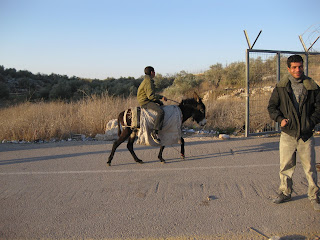The first official Olive Conference for this area was held at Kadoorie University on Feb 8-10 in Tulkarm. It was held in the new auditorium at the University Drama and Arts center. There were also several vender booths set up in a nearby building with information about the products, samples and items for sale. It was exciting for us to be invited and we attended during times convenient for us.
Palestine is called ‘the land of milk and honey’ for a reason. For centuries olive trees have grown in this climate and soil. It is a natural process where the trees are rain-fed and directly exposed to sunlight for long hours during the day. It’s what I’d call the perfect growing conditions for this type of tree. Once established, the tree survives whatever the weather conditions are. Palestine has extremely hot weather conditions in the summer and rainy/ cooler weather in the winter. It doesn’t seem to matter to the olive tree as it spreads its branches and continues to thrive. Besides being used for cooking and eating, it is used for medicinal purposes and also made into soap.
Olive oil is considered a blessed tree by God which in turn reflects this blessing to human health. The two main varieties grown in Palestine are Nabali and Souri olive varieties. These two types are distinguished by their special flavor and taste. They also contain higher concentrations of anti-oxidation components which prevent cancer and heart diseases. The harvesting of olives in Palestine is done manually by experienced Palestinian farmers who know the best time to harvest their olives…..not too early and not too late. Cold pressing and modern machines are used to produce high quality virgin olive oil.
Olive oil has wonderful properties for people of all ages. For pregnant mothers and for her fetus, it provides unsaturated fats which are essential for the formation of nerve tissues, bones and other body cells. For children it assists in improving their ability to learn and understand. For men it reinforces their physical strength and mental abilities. For older people it reinforces the nerve system in the body and strengthens memory. It impedes symptoms of brain and nerve aging besides restoring body cells.
The EAs who have been in Palestine during the olive harvest have written about accompanying the farmers to their fields. Being with the farmers on such occasions has brought about lots reflection and inspired writing. We have learned that it is important for each family to have a supply of olive oil. We have also learned to use it in our own cooking.
What has been heart breaking is to realize how difficult it has become for farmers to access their olive trees and give the trees the care they deserve. Farmers are given only a limited time to pick their trees and for many, harvest time has become a time of increased tension as some settlers use this as an opportunity to harass and bully farmers. The confiscation of land has been accompanied by destruction of thousands of olive trees.
As I have written previously, it takes at least twenty years for a tree to produce olives. So for farmers to plant trees is a testament to hope. To witness this hope and determination in the face of the roadblocks, quite literally, placed in their way, has been a real blessing to me and my colleagues at our early morning gate watches.
Please include these brave olive farmers in your prayers.
I will list several resources for you to learn about the difficulties that Palestinians face in maintaining their olives groves.
http://www.poica.org/editor/case_studies/view.php?recordID=455
http://www.youtube.com/watch?v=zEW0Y_Yaeuo
Susanne
I will list several resources for you to learn about the difficulties that Palestinians face in maintaining their olives groves.
http://www.poica.org/editor/case_studies/view.php?recordID=455
http://www.youtube.com/watch?v=zEW0Y_Yaeuo
Susanne





No comments:
Post a Comment